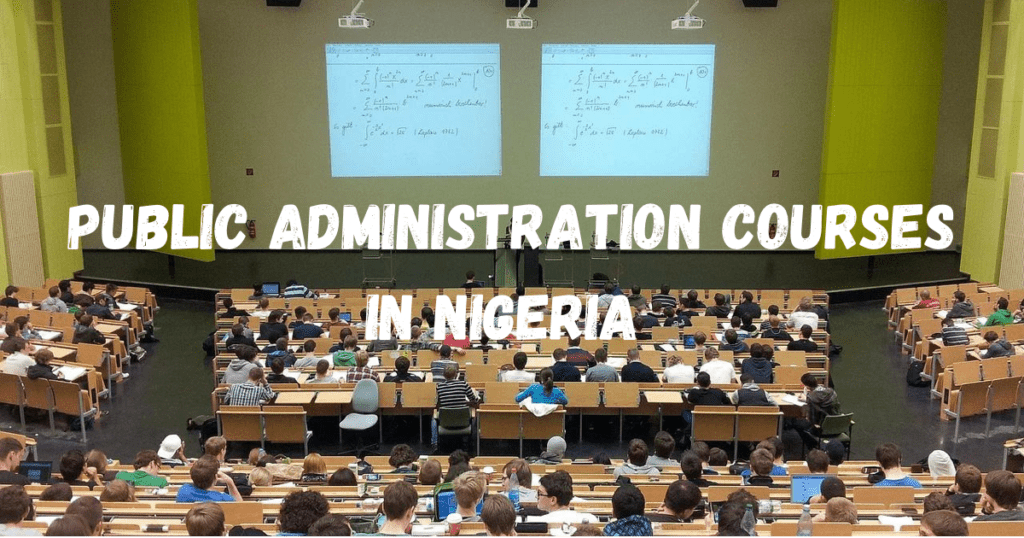National security refers to the measures taken by a government for the protection of a country and its citizens, institutions, and interests from internal and external threats. It encompasses political stability, economic prosperity, military strength, and foreign relations.
This is achieved through a combination of intelligence gathering, military power, diplomacy, and law enforcement.
The exact structure and responsibilities of national security organizations vary by country, but typically involve coordination between multiple agencies and branches of government, such as the military, intelligence agencies, and foreign affairs departments.
Also, read the Problems of Nigeria Federalism.
National security challenges refer to threats or risks to a nation’s sovereignty, territorial integrity, and political stability, including issues such as terrorism, ber-attacks, organized crime, natural disasters, and foreign aggression.
These challenges can arise from within or outside a country and can have a significant impact on the safety, stability, and prosperity of a nation and its citizens.
National Security Problems in Nigeria
Nigeria is facing several security challenges including:
Terrorism
Terrorism in Nigeria is primarily carried out by Islamist extremist groups, particularly Boko Haram and its offshoot, Islamic State West Africa Province (ISWAP). These groups have carried out numerous attacks on civilians, military targets, and infrastructure, causing widespread death, injury, panic, and displacement.
The Nigerian government and military have been engaged in a counter-terrorism campaign against these groups, but the violence continues. The root causes of terrorism in Nigeria include poverty, political and economic marginalization, and religious extremism.
Kidnapping
Kidnapping is a serious issue in Nigeria and has been on the rise in recent years. The Nigerian government has made efforts to combat it, but the situation remains challenging.
Kidnapping can occur for various reasons including ransom, political motives, and personal reasons such as rituals and punishment.
The government advises citizens to be cautious and take measures to protect themselves, such as avoiding traveling alone at night and being aware of their surroundings.
Banditry
Banditry, in Nigeria, is characterized by armed robbery, kidnapping for ransom, and other forms of violent criminal activity. It is widespread in rural areas, especially in the northern states, and is fueled by poverty, lack of employment opportunities, and the proliferation of small arms.
The Nigerian government has taken various measures to combat banditry, including increased police patrols, deployment of military forces, and creation of community vigilante groups, but the problem remains persistent.
Ethnic and Religious Conflicts
Ethnic and religious conflicts are a major challenge in Nigeria. The country has over 250 ethnic groups and several major religions, leading to tension and competition for resources and political power. Some of the major conflicts include:
- Hausa-Fulani vs. Yoruba: Tension between these two ethnic groups has roots in competition for resources and political power.
- Igbo vs. Hausa-Fulani: This conflict stems from a long history of ethnic and religious tensions, as well as competition for political power and resources.
- Muslim-Christian: Religious conflict between Muslims and Christians has been a major source of tension, particularly in northern Nigeria where the majority of the population is Muslim.
These conflicts have led to the loss of lives, destruction of property, and displacement of people. The Nigerian government has taken steps to address the conflicts through peacebuilding initiatives, but they persist.
Herdsmen-Farmer Conflicts
Herdsmen-farmer conflicts in Nigeria refer to the frequent clashes between livestock herders and farmers over resources such as land and water. These conflicts are often fueled by competition for scarce resources and limited government intervention, leading to loss of life and property damage.
The situation has been exacerbated by factors such as population growth, desertification, and climate change.
Efforts to address the issue include government intervention, community-based conflict resolution mechanisms, and education campaigns to promote peaceful coexistence between farmers and herdsmen.
The government has taken steps to address these challenges, but they persist and continue to affect the lives and livelihoods of people in Nigeria.
Also, check out Nigerian Airforce Recruitment Training.
Effects of National Security Problems
National insecurity in Nigeria affects the country in several ways. They include:
- Decreased economic growth and investment due to violence, terrorism, and kidnapping.
- Displacement of large numbers of people and increased poverty levels.
- Reduced tourism and foreign investment, affecting the country’s international reputation.
- Strained government resources as it tries to address security challenges.
- Impaired social and community cohesion due to conflict and division.
- Increased crime and drug trafficking.
- Political instability and decreased trust in government institutions
National Security Problems Solutions
Enough moaning about the challenges faced by the nation. Enlisted below are solutions to the above-named problems:
- Strengthening Intelligence Gathering: Improving intelligence gathering mechanisms to detect potential security threats before they materialize.
- Upgrading Cybersecurity: Investing in cybersecurity infrastructure and awareness programs to prevent cyberattacks and protect sensitive information.
- Military Modernization: Upgrading military hardware, technology, and training to enhance the country’s defense capabilities.
- Counterterrorism Measures: Implementing measures to counter-terrorism activities through domestic and international partnerships.
- Border Control: Strengthening border control measures to prevent illegal cross-border activities and the entry of terrorists and other security threats.
- Diplomacy and International Cooperation: Building strong diplomatic relationships with other countries and participating in international security organizations to enhance global security efforts.
- Infrastructure Protection: Protecting critical infrastructure, such as power grids and communication networks, to prevent their exploitation by security threats.
- Domestic Surveillance: Balancing the need for domestic surveillance with the protection of civil liberties to ensure the safety of citizens.
- Emergency Preparedness: Developing emergency preparedness plans to respond quickly and effectively to security threats.
- Strategic Communications: Using strategic communications to counter extremist propaganda and promote a positive image of the country.
- Improvement of the Criminal Justice System: The judiciary should have developed time scales for cases at this stage in our development. There should have been a time to determine a cause; Time to close this case; and time to pass judgment.
- Addressing root causes of insecurity, such as poverty and unemployment.
Final Notes on National Security Problems and Solutions
It is crucial to develop policies and initiatives that can effectively address Nigeria’s fundamental problems, including terrorism, kidnapping, ethnoreligious conflicts, and the movement of different arms and ammunition within the country.
Therefore, government reforms that address some important national security challenges impacting the vast majority of the public must be combined with legislative and judicial interference for attempts to combat insecurity to be successful.
Before you go, check out Felony in Nigeria.







